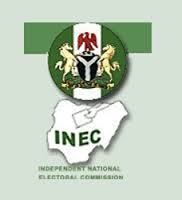The outgoing acting chairman of Independent National Electoral Commission (INEC) presented the commission’s post-election scorecard to the public on Wednesday, October 21. Coincidentally, the same day, the Akwa Ibom gubernatorial election petition tribunal also gave its judgment on the governorship election in the state. It nullified and ordered re-run election in 18 of the 31 Akwa Ibom local governments.
The lesson is clear; despite the commendable performance of the commission overall as signified in the report, the electoral malpractices, violence, ballot-snatching and falsification of results which undermine the integrity and credibility of credible elections in the country are still problematic.
As Professor Mahmood Yakubu, a professor of Political History and International Studies, takes over as substantive chairman after Senate’s confirmation, he needs no reminder that the right of voters to informed choice is the cornerstone of any democratic society. If elections are fraudulent, the wrong leaders emerge for the electorate. Such imposed representatives produced through manipulation do not owe allegiance to the voters. Godfathers and other private financiers become substitutes for the electorate. Reciprocally, the voters have no reason to trust his performance capacity in elective office as their representative, no matter how hard he tries. For he is neither accountable for his performance to his constituency nor does he owe them any allegiance for competent representation, let alone commitment to solve the problems which affect them if elected to executive office.
For the next four years, therefore, Yakubu and the commission have their work cut out for them.
So far, so good. But INEC has to begin to upgrade the most important stakeholders to make the elections better with an enlightened political class and informed electorate. This goal should be INEC’s first priority as the new chairman takes the hot seat which appears to burn all occupants till immediate past Professor Attahiru Jega sat in it and came out in flying colours.
The commission has laid the foundation for the e-voting culture with the biometric permanent voters card (PVC) and electronic card-reader. Upgrading it to automatic recording of votes cast, tallying and updating the results should be the next step, if the telecoms infrastructure could be equally upgraded nationwide to last mile areas. Nigerian Communications Commission (NCC) seeks to do so with its broadband roll-out. Then the relevant amendment of the laws for e-voting and the Diaspora voters will come online.
Reports about electoral gangsterism from Rivers, Akwa Ibom and Delta states, especially the governorship polls, were discouraging, if not alarming, for their brigandage. But INEC has to keep at it till the civilised conduct of elections takes its roots nationwide.
The only addition to the report card is that over the next four years, INEC has to prepare to intensify its voter education not only for voters, but also for the ill-informed, illiterate and violence-minded political class who sees rigging as sine qua non for electoral victory. The informed and enlightened counterparts prepare strategies to win the polls. The thuggery-minded candidates waste their time recruiting thugs and plotting to rig. They must first attempt to bribe INEC officials, ad hoc staff, security agents and other staff whose collaboration with the commission is indispensable for its success, come Election Day. If they fail with bribe, then their thugs are ready to snatch ballot boxes, disrupt orderly processes at polling units and beat up election officials – all in the effort to ensure that they could get the election materials to thumb-print ballot papers and stuff boxes illegally or falsify result sheets and substitute fake ones, or just fill in results which may not stand up to scrutiny at the post-election petition tribunals.
The good news in the INEC scorecard is the decreasing number of election petition tribunal filings from 732 to 611.
“The number of election petitions after the 2007 general elections stood at 1,290; after the 2011 general elections, the number came down by almost half, with a total of 732 election petitions filed; following the 2015 general elections, the number of petitions further scaled down to 611. It is therefore expected that the incidence of nullified elections will be correspondingly low,” Zakari said.
But until it is near zero, that is, rare and far-between except in crassly blatant malpractices cases, the electoral umpire has not finished its work yet. Somebody or institution has to educate the ignorant political class. Since an enlightened political class makes INEC’s job easier and its performance more credible and result acceptable, the task falls pat on its agenda. Civil society groups will help. Foreign partners, which donated N5.2 billion out of the commission’s N114.1 billion, would equally help as usual for the enlightenment campaign. But the primary duty is for the electoral umpire. And the civilising mission should start from all party executives, even godfathers and financiers of contestants from federal to local council levels if they will show their faces all the way.
As a commentator said about a disillusioned candidate in a recent election, the rigging was so total that it saved him from a messy family quarrel. He got zero vote. If it was any other number, since he went to the polling centre with his wife and mother to cast their ballots, he would have suspected betrayal by his immediate family members. But when his own vote he cast for himself also ended up “voided” by the riggers, end of the story about total rigging.
So, until all the politicians discard the gutter-politics notion of do-or-die contests, INEC has no alternative but to enlighten the political class about the indispensable need for the elections as the first pillar of democracy. Orderliness must necessarily go with the elections process to make the winner emerge cleanly at every poll, show magnanimity to the losers who, in turn, would congratulate the winner – and life moves on. For, let the winner have it, get back to the drawing board, re-strategise and make sure he beats all the others next time around.
The next group for education should be for the INEC field staff, especially the corrupt ones, among the 37 Resident Electoral Commissioners (RECs) for the states and Federal Capital Territory (FCT). Once compromised, all the efforts put into conducting the election in a whole state is zero. All the more reason those who blame the small ad hoc staff who may be bribed, arm-twisted, intimidated to falsify results of one polling unit with only 500 voters miss the point. One corrupt REC out of 37 in charge of a populous state could mar a federal election than 100 ad hoc staff put together. That’s why the INEC chairman must have enough power to change, replace or swap controversial RECs at the snap of a finger, so that the likes of Mrs. Ayoka Adebayo and Gesila Khan would be kept on their toes of ethical integrity and make them desist from any action which may rightly or wrongly trigger voters’ or candidates’ suspicion and electoral violence.
Till then, I concede that INEC staff currently work under some perilous conditions in sometimes hostile environments created by mutually suspicious contestants, some of who belong to the illiterate, uninformed political class which mistake election competition as war. Much as democrats detest having the military play any role in election matters, it is up to the democratic activists to help INEC to educate the illiterate to comport themselves as converted democrats on Election Day.














